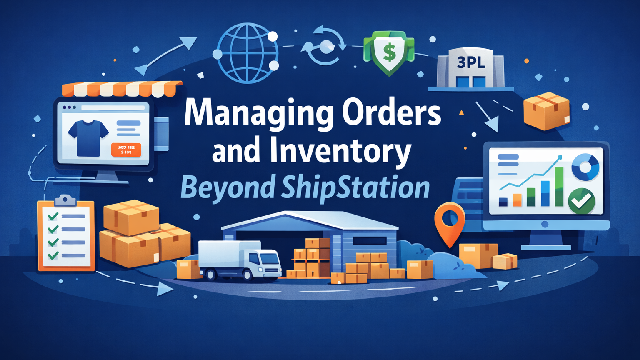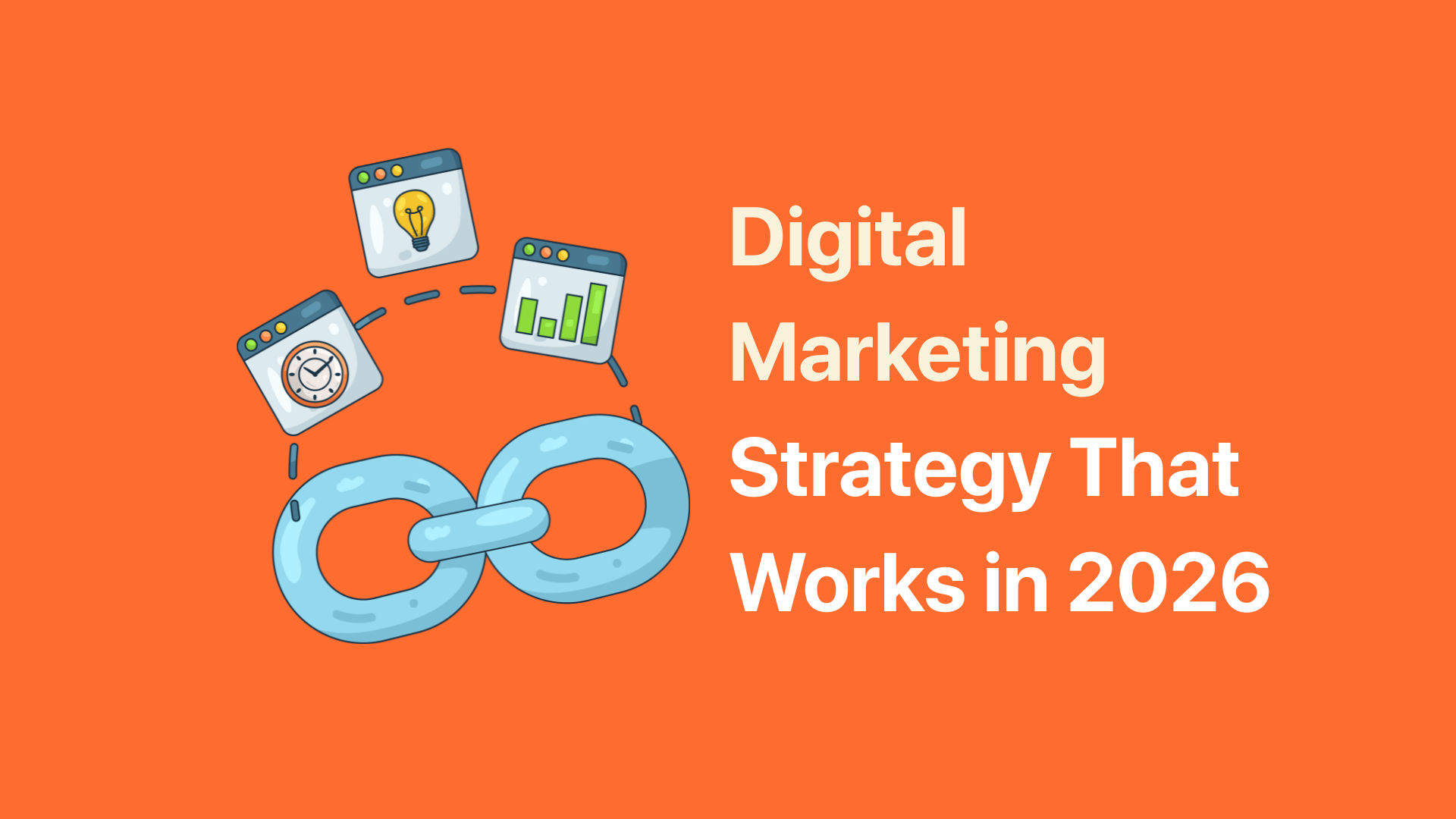Launching a B2B Startup in 2025: A Complete Founder's Checklist
Your goal to start a business in 2025 can open up a world of new opportunities for you, from tapping into emerging technologies to reaching a business-focused clientele for your desired products and services. However, this endeavor will surely come with a fair share of challenges that, when approached without a strategy, can hinder growth instead of instigating it.
With technological advancements, shifting market demands, and global economic factors at play, even as a new entrepreneur, you must be agile and well-prepared enough to navigate the challenges ahead. If you are starting a B2B business, knowing how to market to, connect with, and supply other companies will be essential. Luckily, the right approach, and you will be able to get off on the right foot. Here's the ultimate start-up checklist to start a B2B company, which should guide you to take the pivotal steps for developing your idea into a successful new business venture:
1) Secure Enough Funding
Whether you’re starting a tech startup, a small retail business, or a service-based company, funding is essential for getting your startup off the ground. You need to have enough capital to cover initial expenses such as purchasing equipment, hiring employees, and marketing your products or services.
In today’s evolving business landscape, you’ll be lucky enough to have access to a variety of financing options, including those specifically tailored for startups. A business loan, for example, can provide financial support for your business during the early stages when cash flow is typically tight.
This type of loan often has favorable terms for new businesses, such as lower interest rates or extended repayment periods, which will be more manageable for you as you establish your company. To manage repayments efficiently and reduce risks, integrating debt collection technology can automate reminders, track outstanding balances, and streamline follow-ups, helping startups maintain healthy cash flow while preserving customer relationships.
The Philippines’ Maya Flexi Loan, for instance, allows you to borrow up to PHP 2 million that you can divide into separate loans. This credit line by Maya Business also has borrower-friendly fees, which will ensure that you can manage your startup’s finances without feeling overwhelmed. Using this type of loan, you can focus more on growing your business and less on the financial pressures that often come with funding a startup.
2) Build a Strong Business Plan
A well-thought-out business plan is essential for launching your startup in earnest. It serves as your roadmap, outlining your goals, strategies, target market, and financial projections. A solid business plan not only helps you understand the direction in which you want to take your business but also plays a crucial role in attracting investors and securing loans. Without a clear plan, even the most innovative business ideas can fail to gain traction.
For B2B ventures, it's important to define the industry pain points your product or service addresses and show how your offer will streamline or enhance the operations of other businesses. Include B2B-specific insights such as your sales strategy, account management plan, or the use of targeted email campaigns for lead nurturing.
Your business plan should begin with a compelling executive summary that encapsulates your vision and objectives. It should next outline the product or service you are offering, explain the problem it solves, and detail how you plan to scale your business.
Additionally, it’s important to include a market analysis that defines your target audience and identifies competitors. This will help you position your product effectively and differentiate it from others in the market. On top of a market analysis, incorporate realistic financial projections to argue the financial viability of your business. Include estimates of your startup costs, project revenue, and an outline of how you plan to manage expenses. A comprehensive plan will give investors confidence in your ability to steer your startup, increasing your chances of securing the funding you need to launch and sustain your business.
Understanding what drives company valuation can help shape your business strategy from the ground up. This guide on maximizing business valuation offers valuable insights.
3) Develop a Resilient Supply Chain
A resilient supply chain is critical for any startup, and something you should aim to achieve right away. Early into your entrepreneurial journey, you should be able to practice the ability to quickly adapt to changing circumstances—whether it’s due to supply shortages, increased demand, or disruptions—and ensure that your operations can run smoothly.
In the B2B context, consider how your supply chain supports your value proposition to other businesses. Timely deliveries, reliable fulfillment, and the ability to scale or customize orders can be key differentiators when selling to professional clients.
Building a resilient supply chain involves several key steps. For instance, you need to be able to select reliable suppliers who can meet your quality standards and delivery timelines. Diversifying your sources of materials also reduces your risk of dependency on a single supplier, enabling you to better manage supply shortages or price fluctuations.
Another thing you need to consider is what technologies you can use at this point to streamline your inventory management. Tools such as inventory management software and enterprise resource planning (ERP) systems can help you track stock levels in real time and automate your reordering processes. These tools will also enable you to forecast your demand more accurately, ensuring that you always have the right amount of inventory to meet customer needs without overstocking.
4) Assemble a Skilled Team
No startup is possible without the proper team behind it. As the pillar of your company, your team will be instrumental in assisting you in carrying out your vision and actualizing your ideas.
When hiring your team, ensure that they are not only technically qualified for their positions but also passionate and committed to your business. Begin by establishing clearly defined roles and responsibilities needed for your startup to operate effectively.
Within a B2B context, it is necessary to employ individuals with previous experience in dealing with enterprise customers or with B2B relationship management. Your sales and marketing staff, especially, need to be experienced with lead nurturing, CRM systems, and the longer sales cycles typical in B2B markets.
Seek individuals whose personalities and track records align with your company culture and values, for it is these individuals who will be your partners in creating a positive and collaborative work culture. Moreover, think about providing professional growth opportunities within the company so that you can appeal to ambitious individuals who seek long-term professional advancement. A talented and inspired team shall be your greatest strength as you take the bold move of founding and growing your startup.
5) Register Your Business and Secure Permits
After you have your business concept, plan, and team established, it is time to make your startup legitimate. Register your company and obtain the necessary licenses to make sure that your company is legal and can reap the many opportunities open to it.
The first step is choosing the right business structure, whether it’s a sole proprietorship, partnership, or corporation. Each structure has its own tax implications, liability protections, and other legal requirements, so it’s important to consult an accountant or lawyer to determine the best option. After selecting the structure, you’ll also need to register your business with the appropriate government authorities and obtain a tax identification number (TIN).
Based on your type of business, you might also be asked to apply for particular permits or licenses in order to legalize your operation. These can range from health permits, zoning clearances, to industry-specific licenses, and these will ensure your compliance with the local law. Not acquiring the right permits might result in fines, legal cases, or the shutdown of your business, so it is imperative to find out everything about them even during the initial phase of your entrepreneurship.
Conclusion
Great things could lie ahead for you this year when you start your new B2B startup venture, but whatever path to success is ahead will take more than a good idea, it will also take careful planning and dedication to what you're trying to do.
By matching your strategy to B2B principles, from focusing on other businesses to creating scalable operations designed for professional buyers, you'll be more likely to succeed in the competitive environment of 2025. This checklist should assist you with both and allow you to take the correct steps toward establishing a solid foundation for your business.










